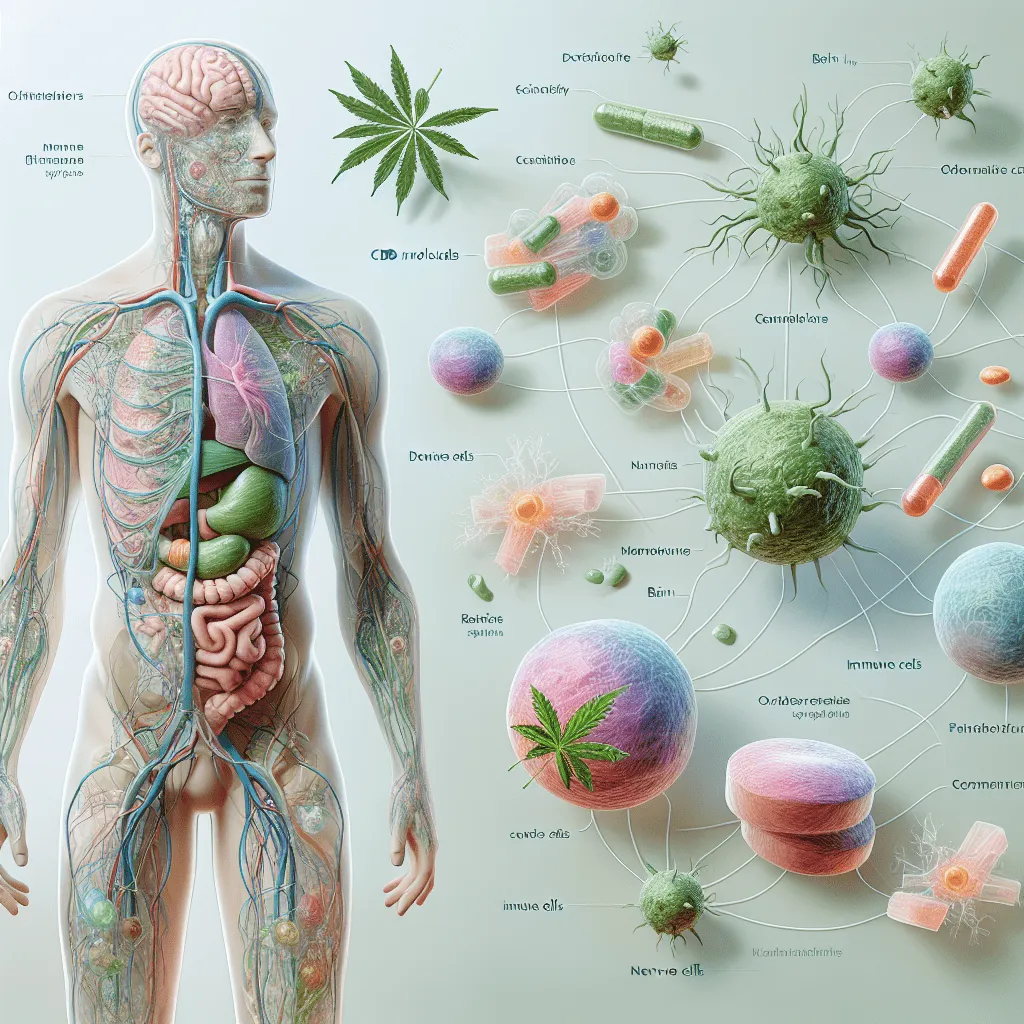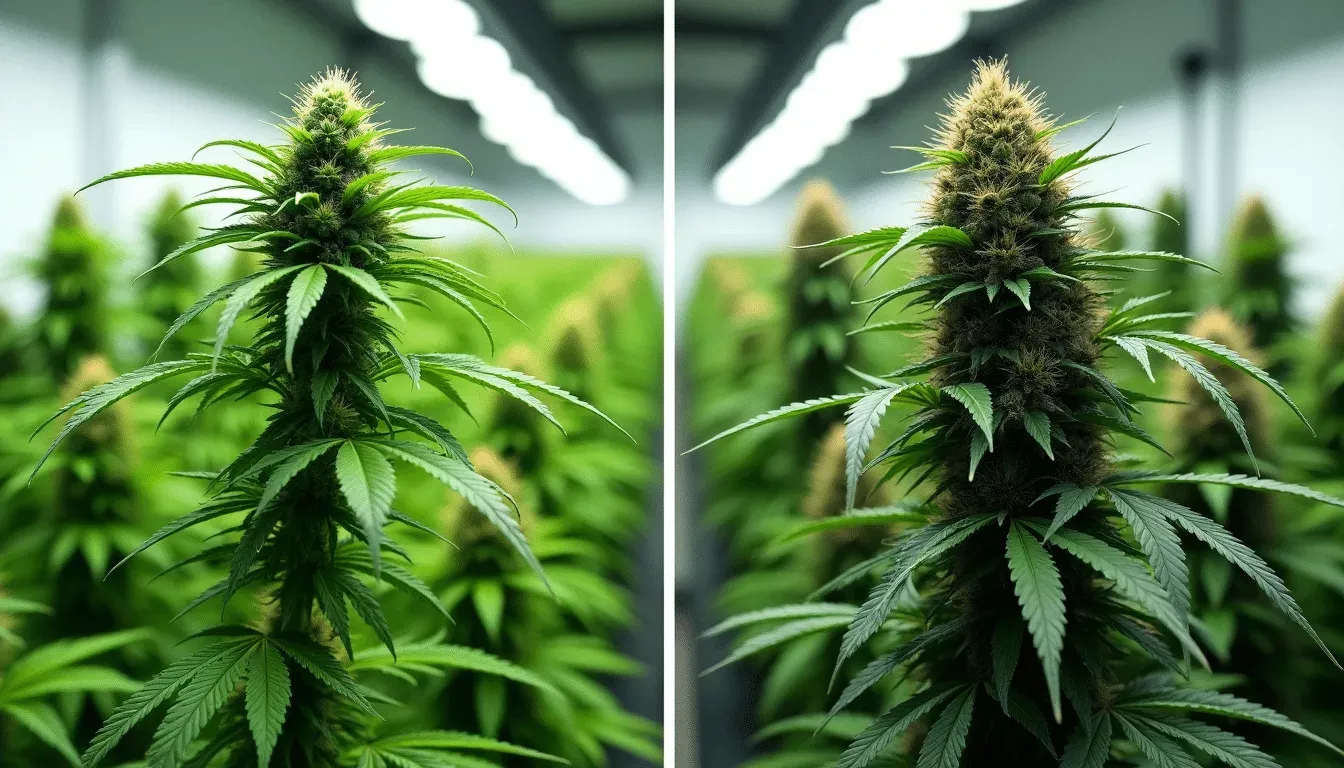The Science Behind CBD: How It Works in the Body
In recent years, cannabidiol (CBD) has surged in popularity as an alternative remedy for a variety of ailments. Its reputation is primarily built on anecdotal evidence and burgeoning scientific inquiries. But what exactly is CBD, and how does it interact with the body? In this article, we’ll dive into the fascinating mechanisms behind CBD, explore its potential benefits and risks, and provide insights into its application. By the end, you’ll have a clearer understanding of why this compound is considered a medicinal marvel by many.
Understanding CBD: A Brief Overview
CBD, or cannabidiol, is one of over 100 chemical compounds known as cannabinoids found in the cannabis plant. Unlike its counterpart, THC (tetrahydrocannabinol), CBD is not psychoactive. This means it doesn’t produce the “high” associated with cannabis consumption, making it an attractive option for those seeking relief without the notable mind-altering effects of marijuana. Historically, CBD has been used in herbal medicine for centuries. However, it is only in recent decades that research has begun to uncover its multifaceted effects on the human body.
The Body and CBD: Unlocking the Mysteries
So, how does CBD work? Central to its function is the endocannabinoid system (ECS), a complex cell-signaling system that plays a crucial role in regulating a range of functions and processes, including sleep, mood, appetite, memory, and pain sensation. The ECS is composed of endocannabinoids, receptors, and enzymes.
The Endocannabinoid System and Its Receptors
The ECS involves two primary receptors: CB1 receptors, mainly located in the central nervous system, and CB2 receptors, found in the peripheral nervous system and immune cells. When CBD enters the body, it doesn’t bind directly to these receptors. Instead, it influences them indirectly, enhancing the levels of endocannabinoids and extending their impact.
For example, studies suggest that CBD can prevent the breakdown of an endocannabinoid known as anandamide, often referred to as the “bliss molecule”. By preventing its breakdown, CBD potentially increases anandamide’s availability in the ECS, offering mood-enhancing effects.
Potential Benefits and Risks of CBD
CBD’s interaction with the ECS has led researchers to study its effects on various aspects of health. Here are some key areas where CBD is believed to offer benefits:
- Pain Relief: A 2018 review published in the journal Frontiers in Pharmacology concluded that CBD may help reduce pain by affecting how pain signals are processed in the ECS.
- Anxiety and Depression: Preliminary research has shown that CBD may reduce symptoms associated with anxiety and depression due to its influence on serotonin receptors, often involved in mood regulation.
- Inflammation: Due to its anti-inflammatory properties, CBD is being researched for conditions like arthritis and multiple sclerosis.
- Epilepsy and Seizure Disorders: Perhaps one of the most widely recognized uses of CBD is in the treatment of epilepsy. The FDA has even approved a CBD-based drug, Epidiolex, for severe forms of childhood epilepsy.
However, CBD is not without its potential risks. Side effects such as dry mouth, fatigue, and changes in appetite or weight have been reported. It may also interact with other medications, which is why it’s essential to consult a healthcare professional before starting any CBD regimen.
Practical Tips for Using CBD
If you’re considering adding CBD to your health regimen, here are some tips to ensure a safe and effective experience:
Start Low and Go Slow
When it comes to CBD, a conservative approach is best. Begin with a low dose and gradually increase it while monitoring your body’s reaction.
Choose Quality Products
With the increasing number of CBD products on the market, it’s crucial to select reputable brands that provide third-party lab testing to verify product purity and potency.
Understand Different Forms
CBD is available in various forms, including oils, tinctures, edibles, and topical applications. Each form has its absorption rate and onset time; choose one that aligns with your needs.
Consult a Professional
Always consider consulting a healthcare professional, particularly if you have underlying health conditions or are taking other medications, to ensure CBD is appropriate for you.
FAQ: How CBD Works in the Body
1. What is CBD and how does it interact with the body?
CBD, or cannabidiol, is a non-psychoactive compound found in cannabis plants. It interacts with the body’s endocannabinoid system (ECS), which plays a crucial role in maintaining homeostasis. CBD influences the ECS by interacting with cannabinoid receptors (CB1 and CB2), potentially modulating various physiological processes, including pain perception, mood, appetite, and immune response.
2. What effects does CBD have on the brain?
CBD does not directly bind to the cannabinoid receptors in the brain as THC does. Instead, it may impact the brain by enhancing the signaling of anandamide, an endocannabinoid, and activating serotonin receptors, potentially providing anti-anxiety and antidepressant effects. This modulation can help promote a sense of calm and well-being without the psychoactive effects associated with THC.
3. How does CBD affect inflammation and pain?
CBD is believed to have anti-inflammatory properties, which can help reduce inflammation and the perception of pain. It affects various signaling pathways and may inhibit the production of pro-inflammatory compounds. This makes CBD a promising option for managing chronic pain conditions, such as arthritis or neuropathic pain.
4. Can CBD help with anxiety and stress?
CBD has been studied for its potential to reduce anxiety and stress. It may influence the brain’s receptors responsible for regulating mood and stress responses, such as the serotonin receptor. While more research is needed, many users report feeling a reduction in anxiety and an overall calming effect when using CBD.
5. Are there side effects associated with CBD use?
CBD is generally well-tolerated, but some users may experience side effects, such as dry mouth, dizziness, changes in appetite, or fatigue. It can also interact with certain medications, so it is important to discuss its use with a healthcare provider, especially if you are taking other prescriptions or have underlying health conditions.
,
Share this content:



